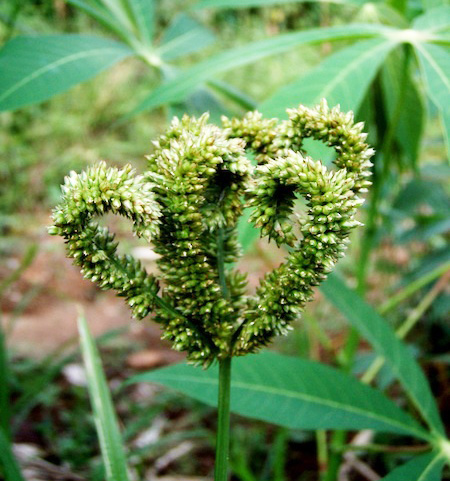NESFAS operates across the north east of India forming strong agrobiodiversity (ABD) networks; envisioning a platform of communities who are still connected to the land, have a vast knowledge of indigenous ecological practices and how to use their resources respectfully for the well being of all. In doing so, we find  that the Slow Food messages of good, clean and fair to be very useful and very strategic in coming closer to this vision.
that the Slow Food messages of good, clean and fair to be very useful and very strategic in coming closer to this vision.
The agrobiodiversity (ABD) networks initiated by NESFAS are currently focused on three thematic topics of millet, honey and shifting cultivation. NESFAS is working together with two existing International Fund for Agricultural Development (IFAD) projects, NGOs, institutions, international and national organisations and individuals who value the concept of Slow Food and agrobiodiversity. Together with these organizations and involved communities, activities revolving around these different aspects are co-developed.
Millet Network
Since millets are hardy, locally-adapted plants that can survive under difficult conditions they are recognised as a climate adaptive food source. Millets have also
been recognised as climate-smart food by the local communities during the Mei Ram-ew Festival. The outcome of this has been a decision to network mi llet growers in Meghalaya and connect them to other millet-growers networks in the North-East as well as the rest of the country. A millet network is currently expanding in several districts of Meghalaya and is involved in reviving and promoting millets as climate-smart, nutritive food. Millet producers from 12 villages of East Khasi hills havebeen connected to one another out of which 10 communities/villages in Khatarshnong (East Khasi hills area) are actively involved in reviving millet. Three villages in Garo hills that are millet producers have been brought under the NESFAS umbrella.
llet growers in Meghalaya and connect them to other millet-growers networks in the North-East as well as the rest of the country. A millet network is currently expanding in several districts of Meghalaya and is involved in reviving and promoting millets as climate-smart, nutritive food. Millet producers from 12 villages of East Khasi hills havebeen connected to one another out of which 10 communities/villages in Khatarshnong (East Khasi hills area) are actively involved in reviving millet. Three villages in Garo hills that are millet producers have been brought under the NESFAS umbrella.
In Manipur & Assam, NESFAS is working with millet producers in three districts to increase millet consumption by working with recipes and offering
alternative methods of production. Discussions with two communities of Assam who are pearl millet producers have also been initiated.
In Nagaland, NESFAS is partnering with the North East Network (NEN). A thorough study has been conducted by NEN in Nagaland on the nutritional
value of millet that shows a significant amount of iron and other minerals that are much lower and sometimes deficient in other staples such as rice. NEN
also sent ten of its members to the 2012 Mei Ram-ew Food Festival in Mawphlang.
The Kyntonkseh Cluster Federation of Diengsong with MRDS partnership and their management is going ahead with starting a millet processing unit in Sohrarim village. NESFAS along with the community from Diengsong Cluster will organise a millet festival in November 2013 so that these villages too have an opportunity to share and learn the benefits of producing and consuming millet. Well-known Chefs are being integrated into the network so that the importance of millets can be
mainstreamed through innovative recipes.
Shifting Cultivators’ Network
Many of the communities in contact with NESFAS reiterated the continuing importance and relevance of shifting cultivation in food security and the sustainable livelihood practices of indigenous peoples and its role in biodiversity conservation. Regretting the lack of understanding of many mainstream development workers, researchers and policy makers of the value of shifting cultivation to these local communities, many of these communities agree with the views of more informed researchers and policy makers that shifting cultivation is indeed a flexible, dynamic, low carbon emitting, energy efficient and sustainable
Pollinators’ Network
Although in a nascent stage in the  North East, NESFAS envisions stronger networks of beekeepers in the near future. The Kshaid Beekeepers Society has agreed to step on the platform of NESFAS to collaborate and further develop and strengthen the network. Meetings with other bee keepers from additional districts are planned for the near future. Given the various culinary and medicinal uses of honey, NESFAS is working towards inserting Honey into the Slow Food Ark of Taste or Presidia.
North East, NESFAS envisions stronger networks of beekeepers in the near future. The Kshaid Beekeepers Society has agreed to step on the platform of NESFAS to collaborate and further develop and strengthen the network. Meetings with other bee keepers from additional districts are planned for the near future. Given the various culinary and medicinal uses of honey, NESFAS is working towards inserting Honey into the Slow Food Ark of Taste or Presidia.
Communities from Assam, Manipur, East Khasi hills and Garo hills have agreed to start the network through documentation and knowledge sharing. An
initial meeting is foreseen before the end of 2013 together with NERCORMP district staff members.
A training Workshop between FAO’s Chief Pollination Specialist and the indigenous participants took place in August 2013.
